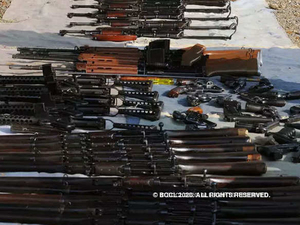
SOURCE: ET
A decision to cancel orders worth billions of dollars for ammunition that were to be placed on the private sector and a new process in which limited numbers are being looked at have hit the industry hard, damping hopes of creating a domestic ecosystem to replace imports.
In a big blow to at least 11 Indian companies that were bidding to supply ammunition ranging from rifle-fired grenades, rockets, artillery shells and fuses to the army, the defence ministry has withdrawn seven tenders in June, saying bids are non-compliant without sharing specific reasons.
This has been a major cause of concern given that banking guarantees alone worth over Rs 300 crore had been pledged by the companies since the bidding process started in 2017 and several Indian entities had signed up technology transfer agreements and had even made payments to foreign collaborators.
Industry insiders have told ET that a major disappointment has been that it took over three years to decide not to go ahead with the procurement plan, without even going for field trials where they could have demonstrated their ability to deliver a range of ammunition.
The decision to issue tenders to the private sector for a 10 year supply programme was taken after the surgical strikes across Line of Control (LoC) in 2016, following which India spent thousands of crores on emergency purchases as tensions arose with Pakistan.
Among major companies that took part in the competition were Kalyani Group, Mahindra Defence, Premier Explosives and Solar Group. The companies had tied up with foreign partners, several of which had been earlier suppliers of ammunition being imported by India.
“It is difficult to understand why it took three years to decide that the process needs to be cancelled. For three years the companies remained tied down with banking guarantees worth crores and spent money on tie-ups and creating capacity,” an industry insider said.
While there has been an attempt to revive the Make in India plan with request for information issued by the army earlier this month for seven types of ammunition, industry sources say that the numbers mentioned may not be financially viable for most of the projects.
“A minimum guaranteed order has to be in place to justify the huge investments required to set up manufacturing facilities of this kind. The numbers being described are not enough as they will be financially unviable, specially as this would be the first time the private sector is getting a chance to manufacture ammunition,” another industry source said.
For example, among the requests for information, the army has specified that it needs only 30 of the 300mm Smerch Rockets annually. Another requirement for shoulder-fired rocket launchers is described as 90 per annum while a third request for 155 mm ammunition does not even specify numbers. The only proposals with significant numbers are 40mm grenades and 7.62 calibre ammunition.






